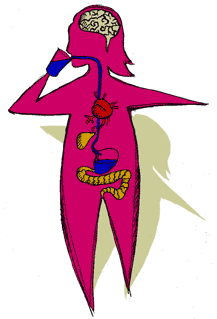|
Fetal
Alcohol Syndrome (FAS) and Fetal Alcohol Effects (FAE) refer to
a group of physical and mental birth defects resulting from a woman's
drinking alcohol during pregnancy. The most serious consequence
is severe mental retardation due to impaired brain development.
Other possible outcomes might be
 mild
to moderate mental retardation mild
to moderate mental retardation |
 central
nervous system problems, central
nervous system problems, |
 small
size, low birth weight or growth retardation small
size, low birth weight or growth retardation |
 facial
or cranial (skull) abnormalities such as: small head size, small
eyes and/or short eye openings, under-development of the upper
lip with flat upper lip ridges, thin upper lip and flat maxillary
jaw) area. facial
or cranial (skull) abnormalities such as: small head size, small
eyes and/or short eye openings, under-development of the upper
lip with flat upper lip ridges, thin upper lip and flat maxillary
jaw) area. |
| FAE
is thought to be a milder form of FAS. It may include some of
the features in cases where there is a history of prenatal alcohol
exposure. Learning/behavior difficulties can be as severe as
FAS. In both FAS and FAE, studies show a positive relationship
between degree of prenatal alcohol exposure and physical birth
defects, growth, brain and behavioral deficiencies. |
|
Follow-up assessments have shown that, in less severe cases,
although some of the physical characteristics of FAS may lessen
with maturity, abnormalities of the upper lip and small eye
openings, short stature,and small head continue. Brain and behavioral
deficits also continue including lower IQ and a number of behavioral
disorders. |
| Children
with FAS/FAE are frequently described as hyperactive, distractible,
or impulsive. They often have short attention spans similar
to attention deficit disorder, but with lower IQ's, particularly
in the FAS individual. In addition to attention deficits, problems
with judgment, comprehension, and abstract thinking are common.
|
| Along
with amount and timing of prenatal alcohol intake, there are
other biological and environmental factors which add to the
risk for alcohol-caused birth defects. Biologic factors may
include increasing age, number of children, or individual differences
in metabolism of alcohol. There may also be genetic differences
which make some more vulnerable to alcohol exposure.
|
| OTHER
CONSEQUENCES OF ALCOHOL TO THE DEVELOPING INFANT |
| Newborns
exposed to alcohol before birth may have a weak sucking response
and irregular sucking patterns early in life. Some describe
them as easily distracted and fatigued when sucking. Sleep disturbance,
and jitteriness have also been reported in infants exposed to
alcohol before birth. |
| Some
studies also suggest that a higher incidence of impaired vision
and hearing, motor incoordination, and problems with balance
are possibly attributed to alcohol use by the mother before
birth of the infant. Fetal exposure to alcohol can also result
in abnormal thyroid function and some decrease in the immune
system effectiveness. |
| HOW DOES ALCOHOL
CAUSE THESE EFFECTS ON A FETUS? |
| Although
the role alcohol plays in FAS/FAE is not clear, possible factors
may include |
 Acetaldehyde
(ACH) which is the primary product when alcohol is metabolized; Acetaldehyde
(ACH) which is the primary product when alcohol is metabolized;
|
 fetal
malnutrition especially if the mother is undernourished. Even
when she has eaten the proper foods, the placenta (structure
that nourishes the fetus) may not be able to carry these vitamins,
minerals and other nutrients which are so important to the developing
fetus; fetal
malnutrition especially if the mother is undernourished. Even
when she has eaten the proper foods, the placenta (structure
that nourishes the fetus) may not be able to carry these vitamins,
minerals and other nutrients which are so important to the developing
fetus; |
 lack
of oxygen due to less blood flow to the fetus through the placenta;
and lack
of oxygen due to less blood flow to the fetus through the placenta;
and |
 disturbance
of prostaglandins (PG's) which control normal blood flow to
the placenta. disturbance
of prostaglandins (PG's) which control normal blood flow to
the placenta. |
| Since
questions about how much alcohol is too much, and when the fetus
is at greatest risk are difficult to answer at this time, women
are advised to abstain from alcohol during pregnancy in order
to prevent the risk of alcohol-related injuries to the developing
fetus. |
| The safest choice
for a pregnant woman is to avoid alcohol, tobacco, and other
drugs. |
| The brain is
unique--it is one of the first to begin to develop and the last
to be completed--and it is particularly sensitive to the effects
of alcohol throughout its development--that is, throughout all
three trimesters. |
| Questions about
how much alcohol is too much and when the fetus is at greatest
risk are difficult to answer at this time since a period of
greatest susceptibility and a dose-response relationship have
not been established. Not all women who drink alcohol during
pregnancy have babies with FAS or FAE, and women who abuse alcohol
frequently, eat poorly, smoke and consume other drugs, which
also put them and their developing infant at risk. |
| In
summary, babies whose mothers drink during pregnancy may be
born with Fetal Alcohol Syndrome or Fetal Alcohol Effects. These
effects last a lifetime for the infant and for their families.
|
|






